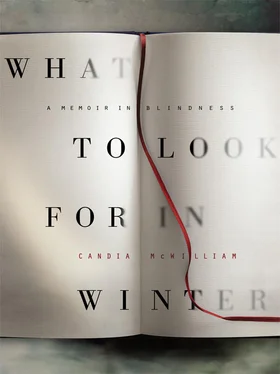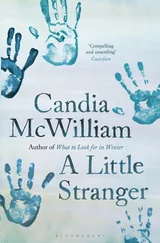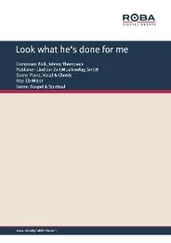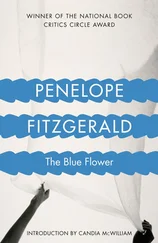The family who originally lived just below and later moved into the local town still came up to work for gli indiani on the hill. Franca, the wife, worked in the orto and as cook, and her husband Guido came and fixed emergencies such as wild boar in the garden or a plumbing disaster.
Negotiations between a Tuscan peasant and a fastidious Zoroastrian, as Fram’s mother Mehroo temperamentally as well as religiously was, were nothing like as difficult as they might have been had the two women not decided that they liked one another. Franca therefore simply fitted in with what she was told, that only napkins with a person’s initial on might be given to that person, that never must bedspreads be put on a bed with the foot part at the top, that all sudsing had to be done before all rinsing when washing up, and that the rinsing must be under flowing water, that dirty utensils must never be laid down on the side but on a dish and so on. Much of it was common sense and the rest she took as part of the charm of this little family who had decided for part of their year to move into the house that had proven such hard work for her own family.
Out in the orto , copper sulphate was sprayed and dried to a high abstract blue on the tomatoes, grapes, aubergines, peppers and zucchini, whose flowers Franca would fry and scatter with salt.
To watch Fram’s mother cook was to watch an artist at work. Her fine, beautiful hands had nails like almonds with that natural line of white seen in some Madonnas. To take the bitterness from a cucumber, she would cut off the narrower end and — often gently telling one a story and meeting one’s eyes with her own — turn and turn and turn the cut piece of cucumber until it had drawn out all the bitter white milk. Then, and then only, would the cucumber be ready for peeling and for slicing into lenses as cool as ice for hot eyes, cut not with a mandolin but with a little knife. She did everything domestic beautifully so that it must have been, for her family, like living with a ballerina or an antelope, something incapable of ungrace or disgrace. She was lovely to behold. It was a quality that resided in tempo as much as in address and gave each act its own dignity. She made, rather than took, time.
When I read Edward Said’s autobiography, I was pierced by the similarity of his own relationship with his mother to that of Fram and Mehroo, though, unlike Fram, Said seemed to have established some wafer of air betwixt she who bore him and what he could bear.
Today, 5 June 2007, is a flawless high blue June day in Chelsea. Some days ago, we were puzzled as to why the air was full of low, close, mechanical noise. It transpired that the Metropolitan Police had chosen to shoot a young man, unhappy in his marriage, desperate for the return of his wife, far gone in drink, and wielding a gun with which he could have killed no one. The police marksman shot him in the head; that is, he shot to kill. What of talking to him? What of tranquillisers? That young man might, a hundred times, have been me.
It is when such things happen that people around my age thank God their parents are dead.
Last night I had a visit from the film-maker Amy Hardie. We have a friend in common and she was keen to tell me about her experience of a shaman in Edinburgh, who she believes has saved her life. She feels that my eyes might open if the doctors could be more humble and eclectic when it comes to the hidden paths of the human brain. I had wondered if I blinded myself when I left Fram, whom I married on 27 September 1986. I left him in November 1996.
The onset of the physical condition, ten years later, seemed like the reification of a metaphor I had inhabited for a long time. This way of thinking enraged the more mechanical of my doctors.
Amy’s film threw me back on the dear dead. When I was drinking, I summoned them and held long conversations with them; I could actually see them. It was a solid experience. Among my dearest dead is Fram’s mother. You might say that it is easy for me to love her now that she is dead, but we do not love the dead on account of the relief they offer us but on account of the personality that has gone for ever. My mother-in-law was one of those who can turn a room to flowers and air or fill it with frost and razor blades. It gave my mother-in-law pleasure herself to give pleasure and yet sometimes something dreadful took and squeezed her. The persons who most understood, loved, overlooked and steadied this were her doting, hugely intelligent, husband Eduljee (Eddie) and her daughter Avi.
When, as a family (which is what I then believed we were), we visited Karachi, it was a time without flaw. Of course the city itself was growing more dangerous and I did not leave the house alone since in myself I constituted a western cliché, with my yellow hair and pink face, maybe even an affront. Fram’s childhood house had been eaten by white ants, so the Karachi house was built, oddly enough, by a Scots architect the Dinshaws came across who was working for UNESCO. The house dated from the nineteen-sixties. It was set around a cool quadrangle where we took tea and batasas , a kind of dry, cheesy, Parsi shortbread. The years fell away from my mother-in-law. Her husband’s sister was in Karachi at the same time with her family and there was much toing and froing, not quite the same as living in the extended family system in the Indo-Italianate villa of Fram’s grandparents that had been sold just that year and which we visited one day for tea.
We drove up past lawns edged with bright red bedding-plants to the façade of this house near the Victorian Gothic Frere Hall in the middle of old Karachi. We mounted the stairs, and in contrast to the other houses we visited during that happy fortnight, encountered the electric interference of modernity. Every room was dominated by a telly and video. There were at least two sons of the house, under ten and chubby. We took tea and talked. There was a year’s worth of Karachi gossip to catch up on, although it was not the inner gossip of the Parsi world. There was talk of conditions worsening in the city, of men with guns at night, of the chowkidars having dreadful fights. On a table to the side of the room reposed a selection of small-eats, or rather enormous and challenging cakes, clearly as much for show as for ingestion. I noticed that the chubsters had disappeared. The table that bore the showy cakes had a nice hand-blocked tablecloth that fell to the floor. It was a homely touch in a house otherwise fitted out by Sony, Sanyo, Bang & Olufsen. The chocolate cake was the most splendid of all, turreted, godrooned and melting. The attack it was receiving from the warm day, despite the chattering air conditioning, was being assisted by four hands that were hollowing out the cake from under the tablecloth with quite as much assiduity as if they had been white ants.
Fram remembers the mango tree in the garden of the house of his babyhood where he was born at Breach Candy in Bombay, within sound of the sea. He used to say that he was the monkey who played and ate and swung and made himself safe in the branches of me, who was that fertile, glowing, mango tree. How can I have taken an axe to its roots?
Back in Karachi, where my parents-in-law had made their first marital home, I had the sense that my mother-in-law was so secure that she could trust me. Her lifelong servant, Munsuf, served us at meals with a different cockade in his turban depending on the formality of the meal. I learned a, very, little Urdu because Munsuf was Muslim and I wanted to make it plain to him how happy I was to see him and the family at home. He began to work for my mother-in-law when he was still a boy and she not that much older, so their closeness was telepathic. One afternoon, my mother-in-law relaxed with me enough to show me her saris. She shook out each one and told me when and where she had worn it. In a woman so averse to show yet so sensible to beauty, this was the showing of a miles-long florilegium. The saris were stored with balls of cedar wood and muslin bags of lavender that she had grown in Cortona. Each sari was a woven story and there was what she didn’t say too, which was that she loved and quite clearly looked beautiful in that pink which is almost blue and that I particularly love; it is among the last colours to fade from flowers at twilight.
Читать дальше











